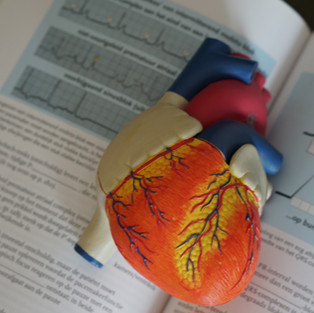Education, Education, Education
- fromtheheart1988
- Mar 25, 2020
- 2 min read
In 2018 I attended a talk given by adult congenital heart cardiologist Professor Michael Gatzoulis. He is one of the most experienced ACHD currently working in the UK. I had never spoken to him before but I'm reliably informed that he cared for me as an intensive care patient that same year. ACHD remains a relatively new branch of medicine which'normal' cardiologists have minimal experience of. Public awareness of CHD is extremely poor and yet 1in 100 children are born with a heart defect. Many leave hospital undiagnosed. People are unaware of symptoms they should be looking for (future post). General cardiologists have very limited training in congenital cardiology. This can become very challenging when a patient presents to their local accident and emergency experiencing a crisis. Congenital cardiology often ignores all the rules of general cardiology. In my experience this often results in cardiologist declaring 'I don't know what to do!' whilst simultaneously refusing to contact my CHD consultant for advice. This refusal is extremely infuriating. This has happened so often that I now sit in A & E and call my consultant before handing my phone the doctor. A lack of knowledge recently resulted in one doctor, who I'd never met before, telling me to stop taking one of my medications immediately. I firmly refused. I have been on that drug for 15 years and I'm well aware of the risks. I also know that coming off them at this time would make my situation worse.
We desperatley need to educate doctors on the complexities of ACHD patients so that they can be better cared for. Liverpool John Moores university have recently launched a new Congenital Heart Defect' module for their trainee doctors and nurses so that they start their professional career with a good basic knowledge. Many people (patients included) wrongly believe that surgery is a 'fix' this is rarely true. Many patients suffer complications or develop other health issues. A large proportion of patients have been 'lost' to the system because of this common myth. Even if they have been stable for many years being lost in 'transition' can still be dangerous.
It is also important that adult patients are properly educated on their condition. We need to be advised in relation to safe level of exercise, lifestyle issues, mental health issues etc. Doctors often don't have enough time needed to properly discuss issues. However, most specialist centres have a team of specialist nurses dedicated to supporting CHD patients. They are often the first point of contact for patients and are a valuable source of knowledge.










Comments